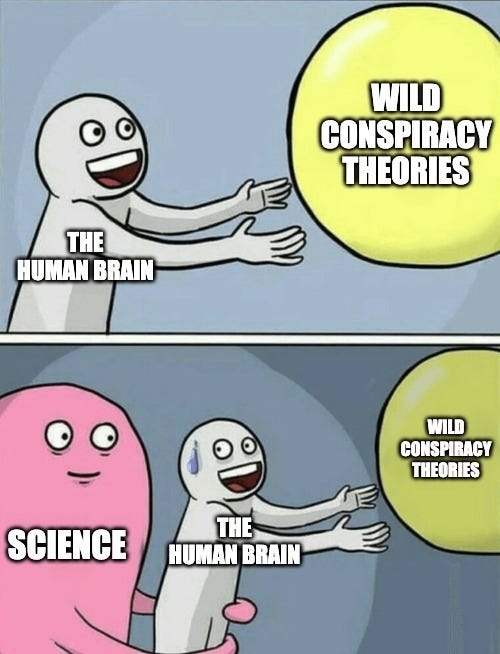racket | Years ago, when I first began to have doubts about the Trump-Russia story, I struggled to come up with a word to articulate my suspicions.
If the story was wrong, and Trump wasn’t a Russian spy, there wasn’t a word for what was being perpetrated. This was a system-wide effort to re-frame reality itself, which was both too intellectually ambitious to fit in a word like “hoax,” but also probably not against any one law, either. New language would have to be invented just to define the wrongdoing, which not only meant whatever this was would likely go unpunished, but that it could be years before the public was ready to talk about it.
Around that same time, writer Jacob Siegel — a former army infantry and intelligence officer who edits Tablet’s afternoon digest, The Scroll — was beginning the job of putting key concepts on paper. As far back as 2019, he sketched out the core ideas for a sprawling, illuminating 13,000-word piece that just came out this week. Called “A Guide to Understanding the Hoax of the Century: Thirteen ways of looking at disinformation,” Siegel’s Tablet article is the enterprise effort at describing the whole anti-disinformation elephant I’ve been hoping for years someone in journalism would take on.
It will escape no one’s notice that Siegel’s lede recounts the Hamilton 68 story from the Twitter Files. Siegel says the internal dialogues of Twitter executives about the infamous Russia-tracking “dashboard” helped him frame the piece he’d been working on for so long. Which is great, I’m glad about that, but he goes far deeper into the topic than I have, and in a way that has a real chance to be accessible to all political audiences.
Siegel threads together all the disparate strands of a very complex story, in which the sheer quantity of themes is daunting: the roots in counter-terrorism strategy, Russiagate as a first great test case, the rise of a public-private “counter-disinformation complex” nurturing an “NGO Borg,” the importance of Trump and “domestic extremism” as organizing targets, the development of a new uniparty politics anointing itself “protector” of things like elections, amid many other things.
He concludes with an escalating string of anxiety-provoking propositions. One is that our first windows into this new censorship system, like Stanford’s Election Integrity Partnership, might also be our last, as AI and machine learning appear ready to step in to do the job at scale. The National Science Foundation just announced it was “building a set of use cases” to enable ChatGPT to “further automate” the propaganda mechanism, as Siegel puts it. The messy process people like me got to see, just barely, in the outlines of Twitter emails made public by a one-in-a-million lucky strike, may not appear in recorded human conversations going forward. “Future battles fought through AI technologies,” says Siegel, “will be harder to see.”
More unnerving is the portion near the end describing how seemingly smart people are fast constructing an ideology of mass surrender. Siegel recounts the horrible New York Times Magazine article (how did I forget it?) written by Yale law graduate Emily Bazelon just before the 2020 election, whose URL is titled “The Problem of Free Speech in an Age of Disinformation.” Shorter Bazelon could have been Fox Nazis Censorship Derp: the article the Times really ran was insanely long and ended with flourishes like, “It’s time to ask whether the American way of protecting free speech is actually keeping us free.”
Both the actors in the Twitter Files and the multitudinous papers produced by groups like the Aspen Institute and Harvard’s Shorenstein Center are perpetually concerned with re-thinking the “problem” of the First Amendment, which of course is not popularly thought of as a problem. It’s notable that the Anti-Disinformation machine, a clear sequel to the Military-Industrial Complex, doesn’t trumpet the virtues of the “free world” but rather the “rules-based international order,” within which (as Siegel points out) people like former Labor Secretary Robert Reich talk about digital deletion as “necessary to protect American democracy.” This idea of pruning fingers off democracy to save it is increasingly popular; we await the arrival of the Jerzy Kozinski character who’ll propound this political gardening metaphor to the smart set.




